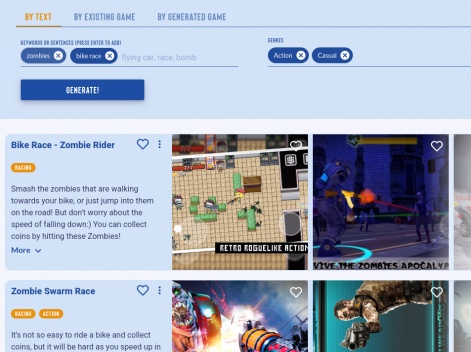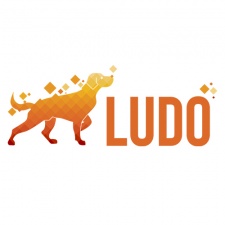Tom Pigott is CEO at Ludo, which uses AI to provide the fastest way to brainstorm new game concepts.
There are a lot of things we do very well in the games development industry.
The way we can work in large teams on complex projects to create blockbuster games would be the envy of other industries.
Our ability to get so many different disciplines working closely together across art, music, 3D, coding and project management, to name but a few, is unparalleled.
The blend of science and art in games development is not always about those huge teams though; small studios and even solo developers can produce fun, compelling games with incredible graphics and mechanics that attract thousands of users.
The creation of development tools and no code/low code environments are making it quicker and easier to get a game to market regardless of a team’s size. It is part of the magic of our industry that the next big hit could come from any country, and a development team of any size.
One area that has yet to be fully integrated into the process of game development though, is Artificial Intelligence (AI).
It’s remarkable that AI has actually been present in games since the earliest 8-bit titles of the 1980s - for example the AI driven ghosts in Pac-Man. Some of these games have even been used as training exercises for AI, such as was achieved with DeepMind’s AlphaStar back in 2018 for Blizzard’s StarCraft II: Wings of Liberty.
The human player, who had 10 years experience in the game, was beaten five matches to nothing.
Somewhere along the way - the potential and value of AI in the full development process has yet to be realised.
Where is AI’s gaming potential?
One of the biggest challenges in gaming is coming up with that ‘next great idea’. Some game developers will focus on trying to build games that are trending, or if they have previously had a hit game, see if they can extend that success with modifications.
Coming up with something original - true innovation - takes a lot of work, time and of course a creative team.
One of the biggest challenges in gaming is coming up with that ‘next great idea’.
Gamestorming sessions are not always easy; but there can be magic moments when everyone is in their ‘flow’ and the ideas - however crazy - make their way onto the whiteboard.
It is an exciting environment to be in, but those moments can be rare, especially when gamestorming sessions are a part of a weekly routine.
When teams are under a lot of pressure with existing projects, it can be difficult to find the mental energy needed to make these sessions productive.
It can be even more challenging for small studios and solo developers, who perhaps just don’t have the time to invest in gamestorming, or the team to bounce ideas off.
When people think of AI and creativity, it is usually in the context of an AI trying to emulate human creativity, whether music or art, with varying degrees of success.
But, there is another way to use AI in the creative process: to inspire, democratise and turbo-charge the human creative process. That is exactly how we built Ludo, a platform designed to boost every studio’s creative currency, whether large or small.
Rather than completely hand over the creative process to AI, Ludo is actually part of a new generation of AI developer tools designed to support and accelerate the game development process, making it more efficient and removing the repetitive drudgery it can involve.
AI in game design
Game design is an interactive and demanding process - creative teams are constantly being challenged to develop new game concepts that are both original and tap into the current hit trends. It needs focus, energy, and an understanding of what works for a target audience, particularly if trying to break through in a crowded market such as hyper casual gaming.
Ludo’s job is to help accelerate this process by inspiring creative teams, and helping them zero-in on their next great idea.
Ludo will generate concepts based on game descriptions, keywords, game mechanics, images etc. that you provide. Analysing its database of nearly a million games, Ludo can produce something entirely new or blend existing games together, including the top performing game chart titles for some surprising results.

Like all the best gamestorming sessions, something somebody says sparks an idea, and Ludo is no different. Choose the favourite results that Ludo generates and then it can keep iterating until you have an original game concept that you want to take forward.
Ludo gives every development team, regardless of size, access to the knowledge needed to turbocharge their creative process. Not just to the point of taking an idea forward - Ludo will even populate game design documents so you can move quickly to the next stage of development.
AI is starting to make its way into the games development process. Human ingenuity and creativity remain at the heart of this industry, but AI has a place in its future, making us more efficient and our jobs even more enjoyable.
We enjoy AI in our games, and now it’s time to put AI to work creating them.
You can try Ludo free for 30 days and see what inspiration it brings to your gamestorming. Visit ludo.ai to register today.





















